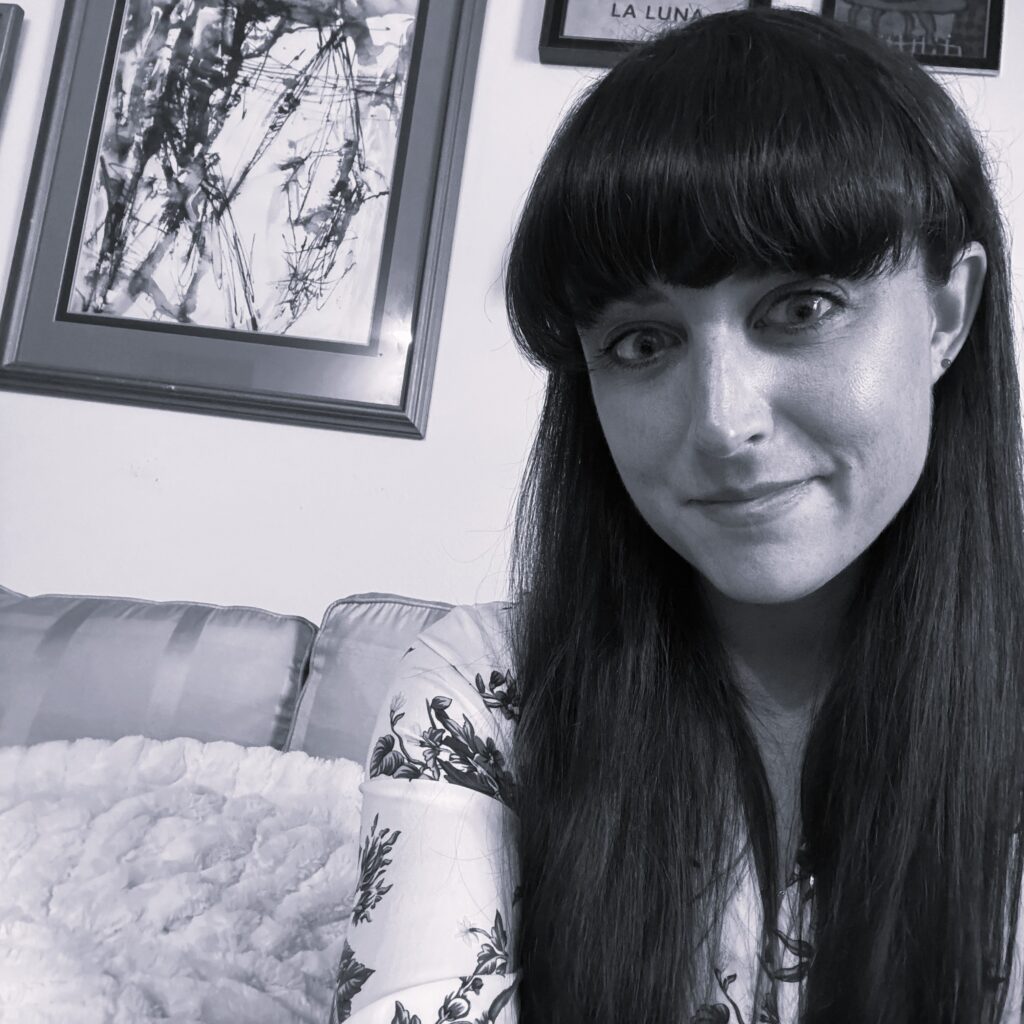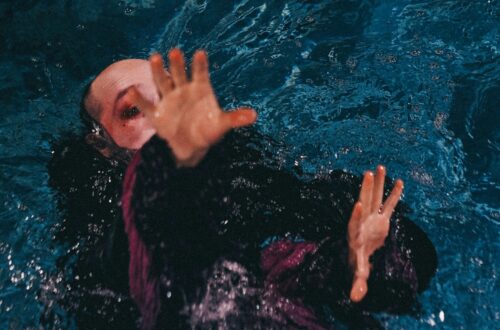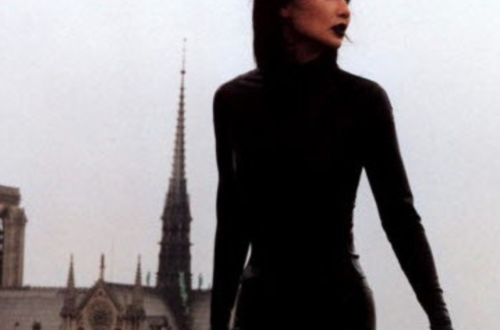Mary Buchanan
Google tells you that the tall, stately, curiously bug-eyed wizard on your Roku TV screen, who you’re gazing at from day-old depression bed, is reported to have the following paranormal capabilities: transfiguring bats into butterflies, coaxing warts into diamonds, and creating whole elephants from ordinary, suburban house cats. But the blankness in the sorcerer’s exaggerated empty-space eyes with their tiny, amphetamine-fueled pupils is what disturbs you the most as a child (you’re remembering this, by accident and all of a sudden) throughout all the years of rewatches. You aren’t certain as to why this memory jogs now, on this rewatch, on this dull and useless day.
According to his Wiki character profile, the wizard’s appearance was based almost exclusively on Walt Disney’s facial features (which is something, despite straining hard to, you’re simply incapable of seeing). The Sorcerer’s name in the The Sorcerer’s Apprentice is Yen Sid, which is Disney spelled backwards, while Mickey plays himself, despite the fact that the charismatic mouse wasn’t even the studio’s first choice of leading man.
This particular titular role as the Mischievous Apprentice™ was originally meant for Dopey—one of Snow White’s seven dwarves—it was actually Dopey! you mutter under your breath—it was a dwarf who was meant to mess with magic, only to end up going homicidal on bewitched brooms in hopes of avoiding his menial chores—so much chaos was created by Mickey Mouse’s misplaced witchiness.
Which surprises thoroughly, doesn’t it? Don’t you also wonder if the Disney people’s logic was to use the (colloquially speaking) least-competent-sounding dwarf for this purpose because of how easy a setup it would’ve been? Sure, only a dope could be tempted to mess in metaphysical matters to avoid his castle chores! Can’t you picture a room full of young, white, male writers going, yes, the dumbest character must also do the dumbest things. So very on the nose.
The dictionary you have on hand defines the word Dopey as, “stupefied by sleep or a drug,” and uses it as an adjective in an example sentence. You are surprised, because the word isn’t directly implying that the noun receiving this adjective is necessarily stupid, but it is implying that the noun is functioning under a substance (whether sleep or booze or enchantment or pharmaceuticals or street drugs or multi-generational family curses) that dulls, disorients, and effectively incapacitates the character in some way.
That Dopey, a minor-ish character comparatively (honestly, since you don’t want to watch the film again on Disney Plus, you’re having a hard time remembering his function besides sleeping in a corner), was for a time promoted to unreliable narrator—drug and dream fueled leading man—is a little inspiring for the fellow outsider like yourself, although you’re glad of MM’s rightful place in the 40s adaptation; he was meant for the role, was probably the only character the Sorcerer wouldn’t have punished more severely.
Yen Sid’s character always frightened you when you watched Fantasia growing up. Maybe it was the slant of his eyes, the stern and masterly hookish quality of his mouth, the way this wiseman aura-vibez vibrated simultaneously nobly and wildly with power when performing magic with his trusty velvet blue hat. Yen Sid carries himself differently when wearing the wizard’s hat and so does Mickey. Upon removing the magical hat, Yen Sid slumps and looks incredibly tired, he looks like your dad who is 71 and refusing to retire despite an exhaustion of 50 years of hard, capitalist work. Similarly, the sorcerer no longer looks as masterly without the magical accessory. He plummets to mortality before us onscreen. It’s more noticeable in Mickey only because he represents you—the collective us of audience and consumer—and how you might react to such discordance.
For a few minutes, you are placed in charge of the cosmos while the magician naps. You are just as naive and unskilled as your favorite mouse. How does this feel? Mickey is you if you were to one day, in your own way and timeline, stumble across a source of undiluted magic and pick it up off the sidewalk.
Mickey is you when you’re tempted to take an ancient, representative bite out of magic, partly out of curiosity, partly out of the infectious human desire to find shortcuts around responsibilities we don’t want, partly because a lack of desire and risk kills a plot succinctly. This appeals to a side of you you like pretending doesn’t still have a say in your everyday choices. It also appeals to you because of all the unpaid (or barely paid) apprenticeship roles you’ve been cast in or cast yourself in over the last decade due to your strain of reckless, bull-headed ambition and tendency for chance-taking—a well known family trait—something that’s invisible, but heritable, and many times has proven itself as the particular driving force in some of your ancestors’ lives and temperament.
Originally—in the penultimate scene where, out of desperation, Mickey maniacally hacks the spellbound broom to pieces—Disney had planned on clearly portraying Mickey in the act of his murderous rage. Which gives you pause, again, considering closely for the first time since childhood, how troubling the scene already was in its violence. You remember thinking to yourself that you’d never seen Mickey mad like an adult before. Also, originally: planned to show Mickey slash the broom to pieces, then discover afterwards that its blade has been broken; this creative risk ended up (for reasons you cannot google) being seen as too grim. In the spirit of replacing this uncharacteristic Disney grimness, the animators ended up only using images of the brooms’ shadows being hacked to bits, thus—you’re guessing to yourself—in their heads, rescuing the early Disney brand from a darker interpretation of events: wherein the audience is given an uncomfortable closeup of their favorite friendly talking mouse’s capacity for darker emotions. Ones usually reserved for villains: pride, envy, greed, and sloth.
More importantly to you, it serves as bright and durable evidence for the Disney bastardizing classic fairy tales, folklore, and myth argument that many of your smartest friends maintain. The only question left for you to consider now is what happens when Mickey shows his shadows—his deeper, fallible, more steeped-in-sin-human qualities—over what audiences have been conditioned to expect: the artless, childlike, charmingly gullible and retroactively clownish nature that has won MM decades of support from an exclusively adoring public? (Because when did Mickey ever get bad PR?)
Do they tar and feather him, this mentally ill lab rat they used to pay thousands of dollars a year to make Orlando, FL, pilgrimages to? During the summertime? Or do they love him still, despite his newly acquired human shortcomings? In this alternative ending, is Mickey still adored for being the All-American, kid-safe, magical mouse despite suffering from internalized rage and a potentially mild personality disorder? In this imagined ending, Mickey mutates into something else that feels to you like the most remarkable and iconoclastic of character morphings (because Mickey is a metaphor that now makes sense in your mind, Mickey is simply you, seen and shot through by white hot light). When you hold Mickey’s mental health up to the light, don’t you see it? Don’t you see him fully from this angle, now, for the first time, and isn’t it strange seeing him this way?
The broom is relentless in its task to fetch water a little in the same way that late stage capitalism feels relentless to millennials. Despite being the sole catalyst of the developing chaos, Mickey is completely walked over by the broom when he weakly tries to stop its progress. The broom doesn’t register him. The broom is offline. The broom is an enchanted object. The broom is a possessed object. The broom is a tool that universally represents usefulness, right, and so it’s easy to see why Mickey leaves it to its own devices and promptly falls asleep. Mickey considers the magicked broom to be like our A.I. (its purpose is to serve a specific function so we don’t have to perform it for ourselves).
While Mickey dreams of commanding the planets and stars and oceans against a swirling, Van Gogh, dramatic cliffside evening sky, the broom begins to flood the room in its quest to fulfill its magical task. Even after being broken beyond any mortal’s repair, the broom’s pieces come alive, splinters standing vertical. They’re once again upright, just now managing the process of regenerating arms (like garden lizards do their tails), trembling with relentless animation—a dumb, blind action for the sake of action—despite there being no need left, no water needed, no chore neglected.

Mary Buchanan is a writer, educator, and occasional tarot card puller. She is the founder of Libre. She holds a B.A. in English Literature from the University of Mississippi, and an M.F.A. in Creative Writing in Fiction from Louisiana State University, where she served as graduate prose editorial assistant for The Southern Review. Her fiction and nonfiction have appeared or are forthcoming Anti-Heroin Chic, Hobart, Brilliant Flash Fiction, Tiny Molecules, Vol. 1 Brooklyn, The Razor, Psychopomp, Flash Fiction Magazine, Third Point Press, Sidereal Magazine, Mississippi Magazine, among others.
Instagram | Twitter
Featured photo by Isaac Garcia (Pexels)





